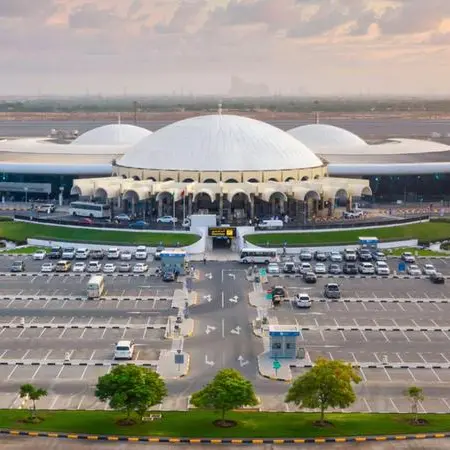According to John Jack, CEO of Galetti Corporate Real Estate, despite a challenging year, the commercial real estate sector is cautiously optimistic about what 2022 holds in store.
“The sector is still recovering from the massive disruptions that occurred in 2020,” explains John Jack, CEO of Galetti Corporate Real Estate. “However, as we continue to acclimatise to our ‘new normal’ and the changing property landscape, the trends that emerged this year will continue to define the sector for the next three years or so.”
The market as it stands
Industrial property is the strongest performer in the commercial real estate landscape, thanks to relatively low vacancy rates, the growing prominence of e-commerce and the relatively affordable price of this class of properties.
And while retail properties are not out of the woods yet, Jack is enthusiastic about this sector’s ability to recover from the hard knocks of 2020. “Second to office space, retail properties – particularly large shopping malls – were hardest hit by the lockdowns as non-essential businesses were forced to close. However, Growthpoint reported that their vacancy rate for the first quarter of the 2022 financial year stands at 5.1%, down from 6.2% at the end of 2021 indicating marginal recovery.”
The office sector remains under pressure with vacancy rates at their highest ever: 15.4% according to the latest report by the South African Property Owners Association (SAPOA). “This is as a result of the increased shift towards remote working and an oversupply of office space in the country’s biggest business nodes, particularly Sandton.”
Jack does not predict drastic changes to the commercial real estate landscape in 2022, but rather that the six biggest trends will be a natural continuation of the observed market shifts in 2021.
Projected 2022 commercial real estate trends:
1. Online auctions continue to gain ground
Auctions have become increasingly popular, and this is set to continue in 2022. “We also anticipate an increase in online auctions, which spiked in activity as a response to the pandemic and is now seen as a simple and safe way to buy and sell property in the digital age,” says Jack. Galetti’s research estimates that around 5% of commercial real estate sales in South Africa are transacted via online bidding platforms, a number that he expects to grow to 25% by the end of 2026.
2. ‘Green’ buildings will be in demand to end reliance on the Eskom grid
Load shedding remains a bugbear for the sector and there is a high probability that it will continue into 2022, requiring businesses to make alternative arrangements to continue operations without disruptions. “Commercial properties with generators are in demand, but buildings that run on renewable energy sources, such as solar power, are even more desirable with many businesses looking to be as ‘green’ as possible. Jack predicts that an increase in buildings with eco-friendly features such as solar thermal water heaters and energy-efficient lights will play a large part in this trend. “These will sell and let for higher price tags than the rest.”
3. The strategic use of traditional office space
As landlords battle to attract and retain office tenants with many companies moving their workforce online, Jack anticipates an increase in creative approaches to traditional office space to fill vacancies. “Landlords are working hard to attract long-term tenants by offering attractive incentives such as on-site baristas, fully-equipped gyms with free access for tenants, hot showers and even rooftop bars for after-work drinks. In addition, we expect to see a continuation of rental incentives such as complimentary amenities and reduced rates,” he says.
Jack anticipates that rooms equipped for video conferencing, modular office furniture and open-plan workspaces are trends that will continue to define office space in 2022. One of the largest banks is refurbishing and equipping only 60% of its board rooms with the latest conferencing technology as it anticipates more of this format of meeting but less demand on the boardrooms overall given lower occupancy levels of the building. “Usually these meeting rooms are used by staff to meet in person or to work as a team,” says Jack.
4. Quest for yields in response to rate hikes
The recent repo rate increase by 25 basis points to 3.75% will have an impact on investor confidence and property demand. “The industry is working hard to recover from the effects of the Covid-19 pandemic and the repo rate hike is set to present its own share of challenges.”
Jack urges landlords to prepare accordingly. “Rate hikes impact yields. Yields are used to determine the relative value of a commercial property. However, there is still an opportunity for sellers to capitalise as they find an owner-occupier looking to buy the property at a strong pricing level.”
“Keeping this in mind, it’s important to note that when buying property, investors will consider yield as they benefit from a higher spread between the yield they can get the property for and the best interest rate they can finance it at. As interest rates move upward, it closes that gap until yields adjust upward accordingly.”
5. Mixed-use developments are on the rise
Commercial property developers are responding to the trend of consumers placing increased value on lifestyle and convenience by building mixed-use developments that combine retail, residential and commercial all in one building. “The residential property sector has seen a boom since the beginning of the pandemic, an uptick made particularly stark in relation to the challenges faced by commercial real estate,” says Jack. “Commercial developers are looking to capitalise on this by building mixed-use developments that will attract a new market and bring some much-needed revenue to the sector.”
A number of prominent mixed-use developments will begin construction in 2022, including River Club in Cape Town and Saxon Square in Johannesburg.
6. Well-run cities generate further investor demand
“The municipal elections that took place in 2021 could spell further investor confidence in select cities in 2022,” explains Jack. “Properties located in well-run areas with exceptional service delivery will be in demand in 2022. Here, areas such as the Western Cape will continue to benefit from investor demand,” he concludes.
All rights reserved. © 2021. Bizcommunity.com Provided by SyndiGate Media Inc. (Syndigate.info).




















